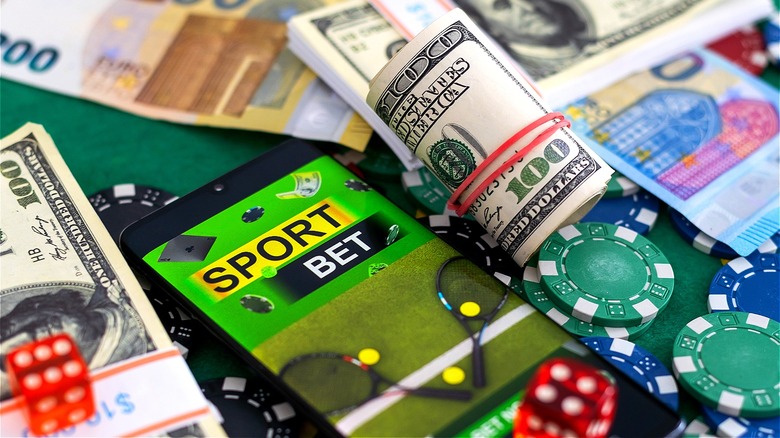
The Evolution of Sports: From Ancient Traditions to Modern Day Phenomena
Sports have been an integral part of human culture for millennia. From the primitive sports of ancient civilizations to the professional athletics of today, the evolution of sports reflects the societal changes and priorities over time. In this article, we will explore the historical development of sports, their significance, and the cultural values they embody. Additionally, for those interested in sports betting, platforms like Sports https://bet-andreas-india.com offer opportunities to engage with sports in a different way.
Ancient Civilizations and the Birth of Sports
The roots of sports can be traced back to ancient civilizations. Historical evidence suggests that sports were played in cultures like Mesopotamia, Egypt, and Greece. In these societies, sports were often tied to religious practices and military training.
For instance, the ancient Greeks established the Olympic Games in 776 BC, which celebrated physical excellence and brought together various city-states in a display of skill and sportsmanship. Events such as wrestling, boxing, and chariot racing were not only contests of strength and speed but also significant social events that boosted community pride.
The Middle Ages: Sports and Chivalry
As societies evolved, so too did sports. During the Middle Ages, sporting events were influenced heavily by the feudal system. Tournaments featuring knights became popular, showcasing abilities in jousting and other martial contests. These events often symbolized chivalry and were a testament to an individual’s honor and prowess.

At this time, folk sports also emerged; activities like archery, hurling, and traditional games varied by region and were often accompanied by local festivals, linking community spirit with sport.
The Renaissance and the Birth of Modern Sports
The Renaissance period ushered in a new appreciation for physical activity. The revival of interest in classical learning led to reforms in education, where physical education began to gain importance. This period saw the formulation of rules for various games, including soccer and rugby.
In England, the establishment of organized sports clubs in the 18th century laid the groundwork for modern sports. The codification of rules and the emergence of governing bodies transformed informal games into regulated competitions. Cricket became a prominent sport, and soon thereafter, the Football Association was formed in 1863—marking the formal beginnings of soccer as we know it today.
Industrial Revolution and the Commercialization of Sports
The Industrial Revolution had a significant impact on sports, as urbanization provided new venues and increased spectator culture. As people migrated to cities, they sought entertainment, which led to the establishment of professional teams and leagues. With the introduction of mass media, sports could be popularized on a massive scale.
Leagues such as Major League Baseball in the USA and the English Football League began to attract large audiences and commercial sponsorships, leading to the commercialization of sports. It indicated a shift from purely amateur participation to professional athletes who dedicated their lives to their respective sports.
Sports in the 20th Century: Globalization and Mediatisation
The 20th century marked the height of sports as a global phenomenon. Events like the Olympic Games and the FIFA World Cup brought nations together, fostering a spirit of competition and international camaraderie. With the rise of television, sports became a staple of entertainment, and athletes became household names.
This era saw the emergence of different sports, including basketball, volleyball, and formula racing, catering to varying tastes and preferences. The establishment of professional leagues in many sports has also led to unprecedented viewership and engagement.

Moreover, sports began to influence social movements, as athletes used their platforms to address issues such as civil rights, gender equality, and environmental concerns. Iconic figures like Muhammad Ali and Billie Jean King not only excelled in their respective fields but also advocated for societal change, utilizing sports as a medium for their message.
21st Century Trends in Sports
As we move further into the 21st century, the landscape of sports continues to evolve. Technology plays a pivotal role in this transformation, from advancements in training equipment to the rise of analytics in performance improvement. Wearable technology allows athletes to track their performance metrics closely, while data analysis has revolutionized coaching strategies.
The explosion of online platforms and social media has also transformed how fans engage with sports. Rich narrative content, behind-the-scenes access, and real-time interactions have created a more immersive experience for fans, fostering a global community centered around their favorite sports and athletes.
Furthermore, the rise of esports—competitive video game tournaments—has redefined what constitutes a sport in contemporary society. This digital evolution appeals to younger generations, creating new opportunities and forms of engagement.
The Future of Sports
Looking ahead, the future of sports appears poised for further innovation and growth. As societal values continue to evolve, we can expect to see an ever-increasing emphasis on inclusivity and representation in sports. Activism and advocacy will likely remain at the forefront of athletic careers, as athletes increasingly use their visibility to influence meaningful changes.
Additionally, sustainability will become a key focus, prompting sports organizations to adopt eco-friendly practices. Conditions related to climate change will require a rethinking of events, venues, and travel so that future generations can enjoy sports as we do today.
Conclusion
The journey of sports from ancient traditions to modern phenomena highlights its profound impact on society and culture. Whether through the lens of history, politics, or technology, sports mirror our values and aspirations. As we move forward into the future, the role of sports in our lives will undoubtedly continue to evolve, inspiring generations to come.
